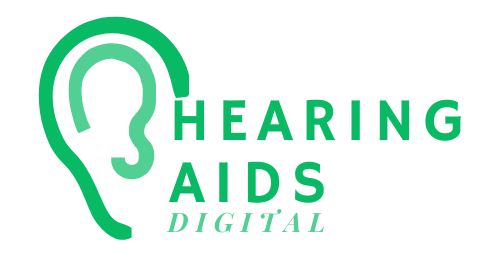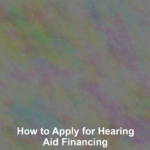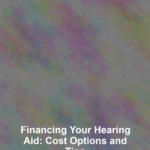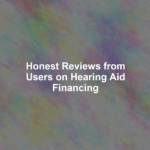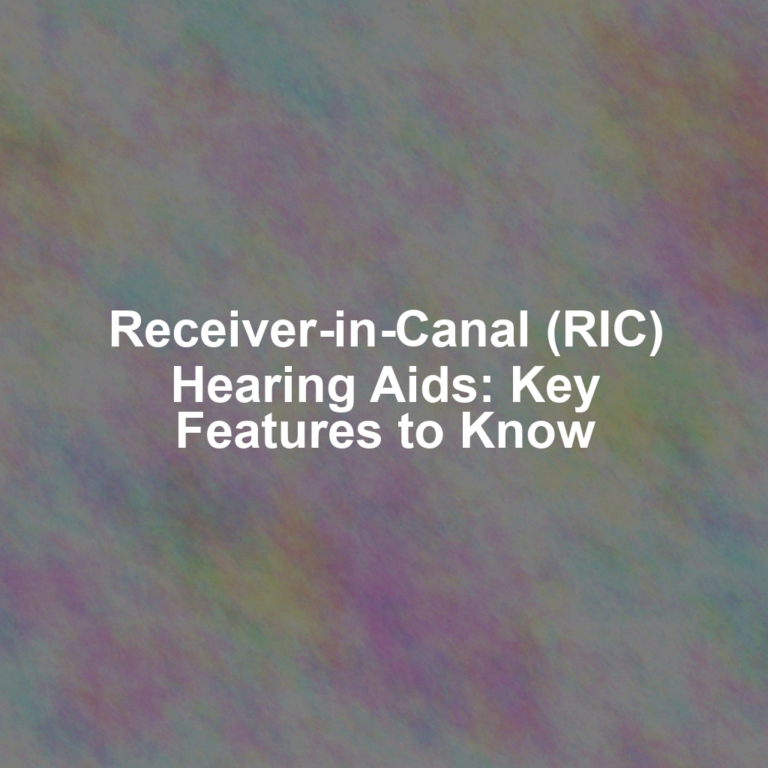Navigating the labyrinth of hearing aid financing can be as intricate as untangling a set of fine chainsG??each decision interlinked with the next, forming a pathway to clear sound. As you embark on this journey, itG??s crucial to arm yourself with the right information to make informed choices.
YouG??ll need to assess your personal hearing aid needs, explore the various financing options available, and understand the extent of your insurance coverage. Preparing your application documents is not just a step; itG??s a strategic move that can make or break your access to a world of improved hearing.
With careful evaluation of loan terms and conditions, you stand at the threshold of making a life-altering investment. Stay with me, and youG??ll discover the key factors that can guide you to a financial plan that fits as comfortably as the device youG??re hoping to secure.
Assessing Your Hearing Aid Needs
Before exploring financing options, itG??s crucial to determine the specific features and type of hearing aid that best suits your hearing loss and lifestyle. This isnG??t a one-size-fits-all situation; you need a device that aligns with the severity of your hearing impairment and the environments you frequent. Start by getting a professional hearing evaluation. This isnG??t just a suggestion; itG??s a must. A licensed audiologist can pinpoint your hearing loss type and recommend aids tailored to your needs.
DonG??t overlook the lifestyles factors either. If youG??re active, youG??ll want a durable, perhaps even water-resistant, model. Are you tech-savvy? Look for aids with Bluetooth connectivity. ItG??s all about what enhances your daily life without overcomplicating it.
Exploring Financing Options
How can you manage the cost of your ideal hearing aid? LetG??s delve into the various financing options available to you.
First, youG??ll want to check if your health insurance covers hearing aids. While many plans donG??t include them, some do provide partial or full coverage, so itG??s worth examining your policy details or reaching out to your insurance provider for clarification.
If insurance isnG??t an option, consider manufacturer financing programs. Many hearing aid companies offer plans that allow you to pay for your device over time, often with low or even no interest for a set period. ItG??s critical to read the fine print, however, to avoid high-interest rates after the promotional period ends.
Another route is using a credit card with a 0% introductory APR. This can be a savvy way to spread out the cost without incurring interest, provided youG??re able to pay off the balance before the promotional term expires.
Lastly, donG??t overlook local resources. Some organizations and charities offer grants or loans specifically for hearing aids. Check with your audiologist or local health department to see what might be available in your community.
With these options, youG??re better equipped to make a financially sound decision on your hearing aid investment.
Understanding Insurance Coverage
While exploring your financing options, itG??s essential to understand what your health insurance covers when it comes to hearing aids. Coverage can vary widely depending on your plan and provider, so youG??ll need to dive into the details of your policy.
-
Coverage Limits: Some insurers may cover the cost of hearing aids up to a certain amount.
-
Frequency of Replacement: Find out how often youG??re allowed a new device; typically, itG??s every few years.
-
Know your rights:
-
State Mandates: Many states require insurance companies to provide partial or full coverage for hearing aids.
-
Appeal Process: If your claim is denied, you have the right to appeal. Understand the steps involved.
Preparing Your Application Documents
Gather your personal financial statements and medical records, as theyG??re crucial for completing your hearing aid financing application. YouG??ll need to show proof of income, so have your recent tax returns, pay stubs, or other income verification documents at hand. If youG??re employed, a letter from your employer stating your salary can bolster your application.
Next, youG??ll want to ensure your medical records specifically document your hearing loss. A detailed audiogram report from your audiologist or hearing specialist is essential. It should clearly indicate the necessity for a hearing aid, which helps justify the financing need.
Credit history is another key factor. Include recent credit reports to demonstrate your financial reliability. If your credit isnG??t stellar, donG??t worry. Prepare a brief explanation of any negative items, showing that youG??re taking steps to address them. Lenders appreciate transparency and evidence of financial responsibility.
Lastly, double-check the application form from the financing company. Fill out every section accurately to avoid delays. If they require additional documents or specific forms, comply promptly. Remember, a well-prepared application increases your chances of approval, so take the time to do it right.
Evaluating Loan Terms and Conditions
When youG??re comparing hearing aid financing options, itG??s crucial to scrutinize the loan terms and conditions carefully to ensure they align with your financial situation. DonG??t get swept away by the promise of immediate relief; the wrong choice could strain your budget in the long run.
Here are key factors you should consider:
-
Interest Rates
-
Fixed vs.-?Variable: Know which one youG??re signing up for.
-
Fixed rates stay the same, offering predictability.
-
Variable rates can fluctuate, possibly leading to higher payments.
-
Short-Term vs.-?Long-Term: Balance monthly costs with overall interest.
-
Short-term means higher payments, but less interest over time.
-
Long-term lowers monthly payments, but youG??ll pay more in interest.
Make sure youG??re comfortable with the monthly payments. Stay wary of any penalties for early repayment; you donG??t want to be penalized for being proactive with your finances. Also, check for any hidden fees that might lurk in the fine print.
ItG??s not just about getting the hearing aid; itG??s about maintaining your financial health while you do. Choose wisely, and youG??ll hear the sweet sound of a smart financial decision.
Conclusion
YouG??ve assessed your needs, explored financing options, and understood your insurance coverage. Now, with your documents ready, carefully evaluate loan terms and conditions.
Remember, this isnG??t just about affordabilityG??itG??s about investing in your quality of life. Make sure youG??re comfortable with the repayment plan, and donG??t hesitate to ask for clarification.
Choosing the right financing for your hearing aid is a step towards clearer sound and better communication. YouG??ve got this!
